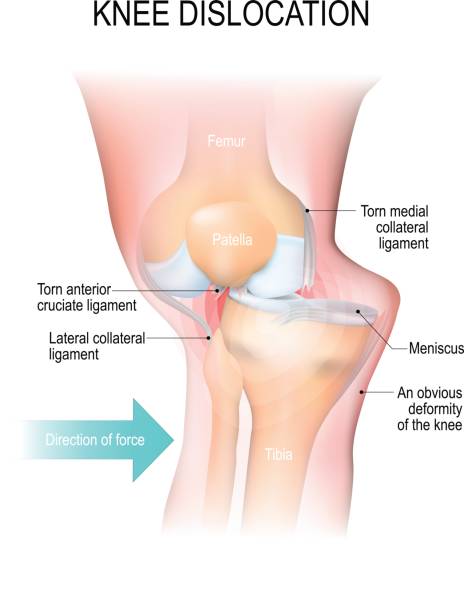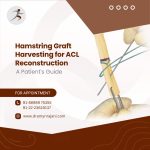Detecting Kneecap Dislocation
Your kneecap is a small bone that forms the rounded surface, which is commonly known as the knee. In medical terms, the kneecap is known as the patella, and it is crucial to the knee joint anatomy.
The kneecap is not in structural continuity with the knee joint but is located in its front and acts as its shield. Strong ligaments bind the kneecap to the leg bones. Structural damage may cause the kneecap to be positioned abnormally; a condition which is known as kneecap dislocation. Let us get to know the common symptoms of kneecap dislocation.

- Pain: A dislocated kneecap can cause dull to throbbing pain with varying intensity. The pain is usually more severe during the initial movements of the dislocated knee or when the knee is under duress.
- Loss of Mobility: A dislocated kneecap separates from the ligaments that secure it and provide mechanical support to the knee joint. There may be internal tissue damage due to the dislocation that can result in a painful knee. As a result of these two structural damages, patients with a dislocated kneecap may experience loss of leg mobility. Ironically, it is very easy to mechanically manipulate the position of a dislocated kneecap, since it is no longer attached to any ligaments or muscles.
- Swollen Knee: Patients with dislocated kneecaps often develop an internal inflammatory response due to which blood rushes to the knees. A knee specialist in Mumbai may find their patients’ knees swollen, reddish, and sensitive to touch upon examination.
Patients with dislocated kneecaps often experience the above symptoms. A thorough physical examination and a precise history of any injury or stress to the knees are adequate to confirm the diagnosis of a busted kneecap.
Kneecap Dislocation Treatment
Most patients who experience a kneecap dislocation are usually offered first aid treatment in the form of ice-pack application and mechanical stabilization of the knee joint. However, orthopedic surgery specialists in Mumbai recommend immediate medical or surgical treatment to avoid further health complications.
- Medical Treatment: Patients presenting with a dislocated kneecap often receive painkillers and anti-inflammatory medicines to control internal tissue damage. Additionally, the patients may be prescribed steroids in the form of oral medicines or injections.
- Surgery: Patients with severe internal tissue damage after a dislocated kneecap may require surgery. Corrective surgery to reposition the kneecap and repair the stressed ligaments usually suffices in most cases. It is unlikely to require the expertise of a joint replacement surgeon in Breach Candy hospital Mumbai to treat a case of kneecap dislocation.
Kneecap Dislocation Treatment by Dr. Amyn Rajani
A busted kneecap, or kneecap dislocation, could be a medical emergency and must be treated accordingly. Patients are advised not to neglect their knee pain, and see an orthopedic specialist soon. Prompt treatment will not only revert the tissue damage caused due to a dislocated kneecap but also prevent unwanted health complications.
A dislocated kneecap, also known as patellar dislocation, occurs when the patella (kneecap) moves out of its normal position in the knee joint. This can result in pain, swelling, and difficulty in moving the knee. Dr. Amyn Rajani is an orthopedic doctor located in Mumbai who can diagnose and treat this condition. Treatment may involve reducing the dislocation, followed by physical therapy and strengthening exercises to stabilize the knee and prevent future dislocations. In some cases, surgery may be required. Book an Appointment at 91-88989 75355, 91-22-23619137.




